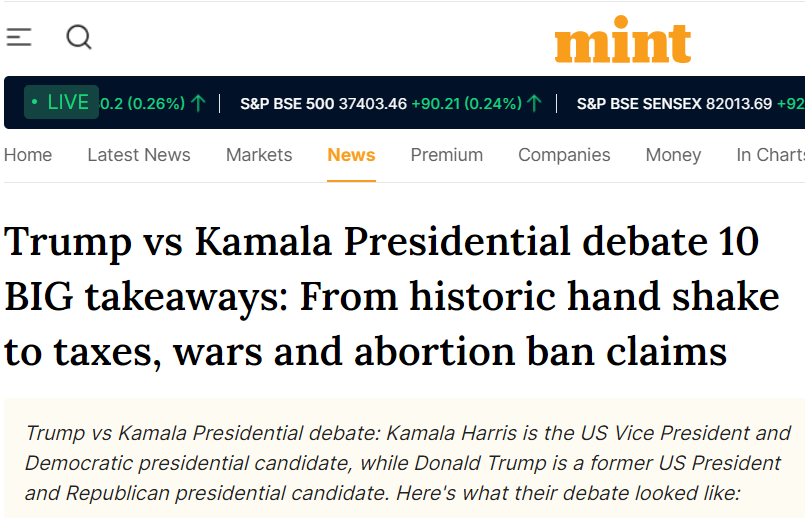The recent debate between Donald Trump and Kamala Harris covered several key economic topics that could have significant impacts on people’s daily lives. Some of the central issues discussed included taxes, military spending, immigration, and healthcare.
- Taxes and Economic Growth: The candidates had different views on tax policies. Trump has historically advocated for lower taxes, which could increase disposable income but reduce government revenues for public services. Conversely, higher taxes, as proposed by Harris, especially on corporations and the wealthy, could provide funding for public programs like infrastructure and healthcare, but may reduce individual spending power and business investments(Investopedia)(Poynter).
- Military Spending and Foreign Aid: Military spending was another hot topic, particularly in the context of Ukraine. Higher defense budgets, typically supported by Trump, can limit resources for domestic programs like education and healthcare. Harris pointed out that reallocating military funds could be more beneficial for everyday services used by the public (Poynter).
- Immigration and Labor Markets: Immigration policies affect labor markets significantly. Stricter policies, like those supported by Trump, might lead to labor shortages in industries reliant on immigrant workers, driving wages up. Harris, on the other hand, supports more relaxed immigration policies, which could increase competition for jobs but also stimulate economic growth through a larger workforce (Investopedia)(Poynter).
- Abortion Policies and Healthcare: The debate also touched on healthcare, with a focus on abortion rights. Stricter abortion laws, which Trump supports, could lead to increased healthcare costs and reduced access to reproductive services. Harris argued that such policies could negatively impact women’s workforce participation and broader economic planning for families (Investopedia)(Poynter).
These discussions underscore how political decisions directly impact everyday economic realities, from job availability and wages to access to healthcare and quality of public services. For anyone planning their financial future, understanding the implications of these policies is crucial.


